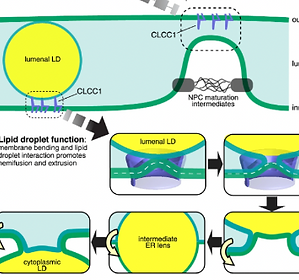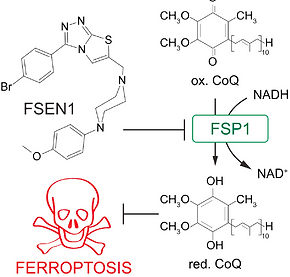top of page

Advancing our understanding of the mechanisms that govern organelle and lipid homeostasis in health and disease
The Olzmann Research Group integrates systems biology, chemical biology, and cell biology to uncover the fundamental principles that govern organelle function and lipid homeostasis. Our research focuses on the mechanisms that regulate lipid storage within lipid droplets and the processes underlying oxidative lipid damage during ferroptosis. By unraveling the biochemical pathways involved, we aim to identify novel therapeutic targets and develop strategies to manipulate these pathways for clinical benefit.

RECENT NEWS
February 27, 2026
Congrats to Alyssa, Emily and all the co-authors on our new publication in Nature! "CLCC1 promotes hepatic neutral lipid flux and nuclear pore complex assembly"
January 23, 2026
New collaborative paper with the Dupage lab out in Science Advances! "Selective disruption of lipid peroxide homeostasis in intratumoral regulatory T cells by targeting FSP1 enhances cancer immunity"
December 12, 2025
Congrats to Abby Harris on her N&V publication in Nature Cell Biology – "In Vivo Models Bring FSP1 Inhibitors to Life"
December 1, 2025
Congrats to Sydney Tomlinson on her new bioRxiv preprint – "Induced ubiquitination bypasses canonical ERAD to drive ER protein degradation"
November 1, 2025
Congrats to Mike Lange and all the co-authors on our new publication in Nature Cell Biology! "FSP1-mediated lipid droplet quality control prevents neutral lipid peroxidation and ferroptosis"
October 15, 2025
New collaborative paper with the Wells lab at UCSF out in the Journal of the American Chemical Society (JACS)! "Hijacking Extracellular Targeted Protein Degrader−Drug Conjugates for Enhanced Drug Delivery"
FEATURED ARTICLES
Mathiowetz*, Meymand* et al.
Nature 2026

Bersuker et al.
Nature 2019


Hendricks et al.
Cell Chem Biol 2023
bottom of page
